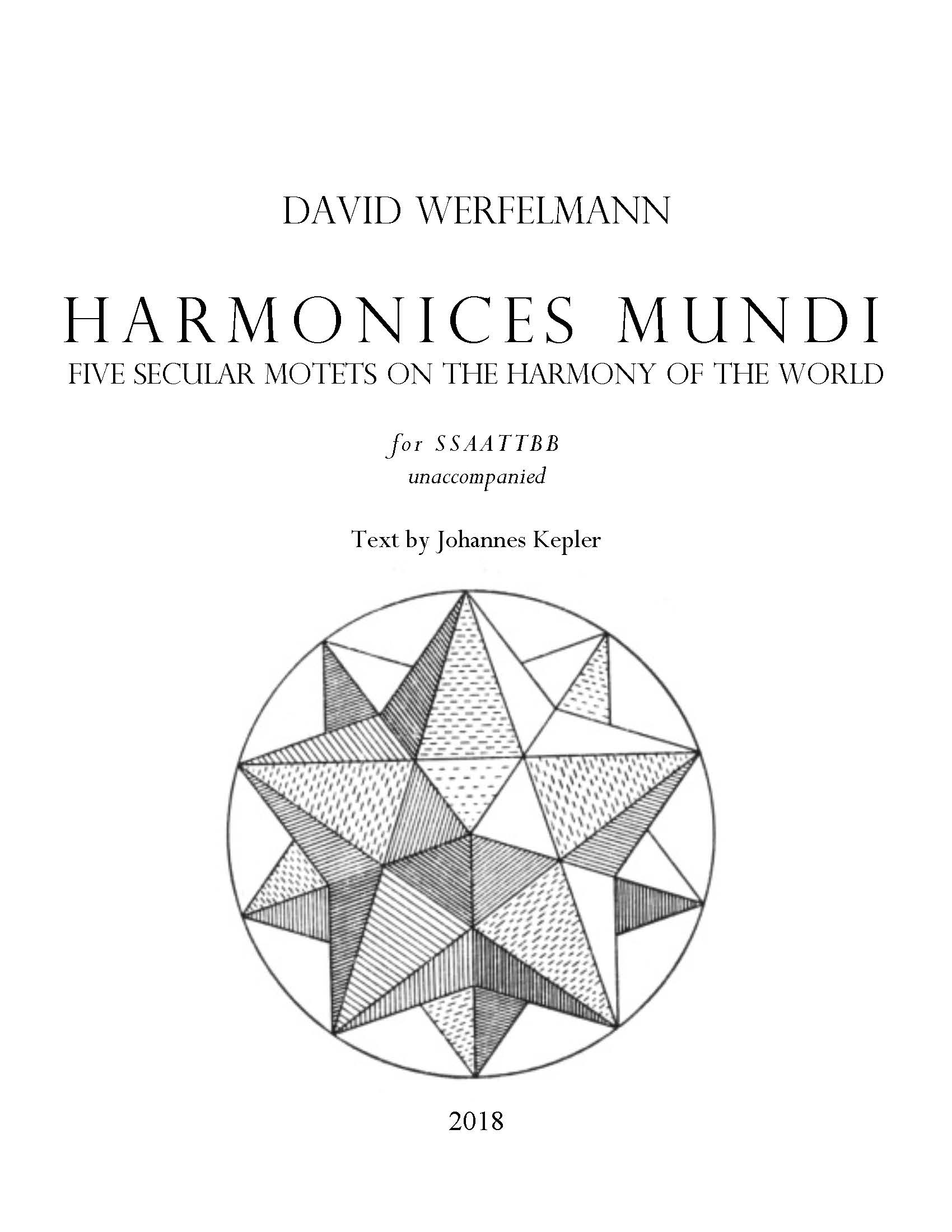Category
Vocal/ChoralHarmonices Mundi
Five Secular Motets on the Harmony of the World
for SSAATTBB unaccompanied
Text by Johannes Kepler
PROGRAM NOTE
In the early 17th century, German astronomer and mathematician Johannes Kepler wrote Harmonices Mundi, a treatise describing a vast cosmic harmony expressed in the motions of the planets. His discoveries, especially those pertaining to planetary motion, would have a profound impact on Enlightenment-era scientists such as Isaac Newton, giving us a deeper understanding of the cosmos. It is his beautiful metaphor of celestial harmony, however, that inspires this work.
The fragments of Kepler’s writings chosen for this set of motets distill his profound reverence for the beauty and elegance of the solar system. De Harmonia, the very first words of the treatise, introduces the work. Totam harmonices provides the thesis. The third motet, Restat lux, is a meditation on a simple truth: amidst the cosmic polyphony light remains. Uranie, the astronomer’s muse, inspires the reverent and joyful fourth motet. The work concludes with a setting of the title, exploring the harmony of the world through expansive nebulae of sound.


